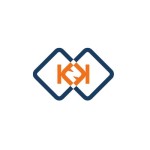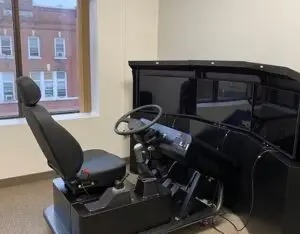If you’re planning to enter the trucking industry, there’s more to success than just purchasing a truck and hitting the road. From licensing and compliance to registration and taxes, new trucking entrepreneurs face a maze of paperwork and regulations. One crucial step that often confuses first-time owners is obtaining Apportioned Plates NJ. These special plates, issued under the International Registration Plan (IRP), make it possible for commercial vehicles to operate seamlessly across multiple states without having to register in each one individually.
In this guide, we’ll break down everything you need to know about apportioned plates, why they matter, and how they fit into the bigger picture of Starting a Trucking Company in New Jersey and beyond.
Why Apportioned Plates Matter
When your truck crosses state lines for business, it becomes part of interstate commerce. That means it’s subject to not just New Jersey regulations but also to the rules of every state it passes through. Without IRP registration, you’d have to register separately in each jurisdiction — an expensive and time-consuming nightmare.
Apportioned Plates NJ simplify that process by allowing carriers to register in one base state (like New Jersey) and pay a portion of registration fees based on the distance traveled in each state. The result is a more streamlined system that saves time, money, and administrative headaches.
For instance, if your truck spends 50% of its time in New Jersey and 50% in Pennsylvania, your registration fees are “apportioned” accordingly. This ensures fairness across states and keeps your business compliant with federal and state laws.
The Foundation: Starting a Trucking Company
Before you can even apply for apportioned plates, you need to have a properly structured business. Starting a Trucking Company in New Jersey involves several steps, including registering your business entity, securing your USDOT and MC numbers, obtaining the necessary insurance coverage, and ensuring your vehicles meet all federal safety standards.
Many new owners underestimate how complex this process can be. A solid business foundation doesn’t just make you compliant—it positions your company for long-term growth. By setting up your operations the right way from the start, you avoid costly penalties, delays, or potential shutdowns later.
Navigating CDL Requirements and Training
If you’re a driver-owner or plan to employ drivers, getting properly licensed is non-negotiable. Every commercial driver must hold a valid Commercial Driver’s License (CDL), and preparation is key to passing the required exams.
Professional CDL Road Test Preparation can make a huge difference in ensuring drivers are confident and knowledgeable behind the wheel. These programs go beyond just learning how to operate a truck—they cover safety procedures, vehicle inspection routines, and defensive driving techniques that protect your equipment, cargo, and reputation.
Good CDL training is also a reflection of your company’s commitment to safety. When regulators or clients see that your team takes training seriously, it builds trust and strengthens your business credibility in a competitive industry.
The Role of DOT Compliance
Even after your business is up and running, maintaining compliance is an ongoing process. Federal and state authorities routinely monitor trucking companies for adherence to safety, maintenance, and operational regulations.
Partnering with professionals who specialize in Dot Compliance Services ensures that your business meets all Department of Transportation (DOT) requirements. This includes driver qualification files, vehicle inspection records, hours-of-service tracking, and drug and alcohol testing programs.
DOT compliance is not just about avoiding fines—it’s about protecting your drivers and your business. Non-compliance can lead to costly shutdowns, insurance rate hikes, and even loss of operating authority. In short, compliance isn’t a box you check once—it’s an ongoing responsibility that helps your company stay safe, legal, and profitable.
Common Mistakes Trucking Startups Make
New trucking businesses often underestimate the time and organization required to stay compliant. Here are a few common pitfalls to avoid:
- Skipping professional help: Trying to handle all paperwork and compliance alone can lead to missed filings or registration errors.
- Ignoring IRP deadlines: Renewal dates for apportioned plates vary, and late filings can mean hefty penalties or downtime.
- Neglecting training: Poorly trained drivers increase accident risks and regulatory scrutiny.
- Disorganized record-keeping: Maintaining accurate logs and inspection records is essential for passing audits and roadside checks.
By proactively addressing these areas, you can set your business apart from competitors who learn the hard way.
How to Apply for Apportioned Plates in New Jersey
Applying for apportioned plates in New Jersey requires you to submit detailed information about your business, vehicles, and travel routes. You’ll need:
- Proof of business registration
- USDOT and MC numbers
- Vehicle title and insurance documentation
- Mileage records (or estimates for new carriers)
The application process can be intimidating for newcomers, but it’s a crucial step toward building a compliant and scalable operation. Working with experienced service providers who understand IRP rules can save you hours of frustration and ensure every detail is handled correctly.
Building a Strong Future in Trucking
Launching a trucking company isn’t just about logistics—it’s about building a business that lasts. Whether you’re a single-truck owner-operator or managing a growing fleet, success depends on compliance, safety, and efficient management of resources.
That’s where expert support makes all the difference. Companies that specialize in trucking compliance and registration services can help you navigate every step—from forming your business and getting IRP registration to managing ongoing DOT requirements. With the right foundation, your company can focus on what matters most: delivering safely and profitably.
Conclusion
From obtaining your Apportioned Plates NJ to meeting DOT standards and passing CDL exams, every step in the trucking journey matters. Setting up your company correctly not only keeps you compliant but also gives you the confidence to expand your operations without unnecessary stress.
If you’re ready to simplify the process, streamline compliance, and focus on growth, reach out to KN MULTISERVICES. Their team understands the unique challenges trucking entrepreneurs face and provides expert guidance to help you drive your business forward—one mile at a time.






Comments